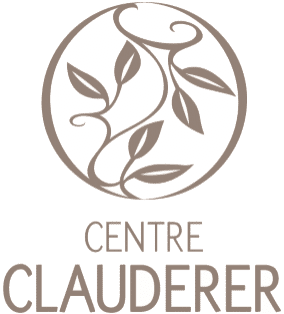♦ Iron is vital for the nutrition and oxygenation of the hair's reproductive cells.
♦ A settled iron deficiency can lead to thinner, brittle hair and widespread, continuous hair loss.
♦ Nearly half of all women of childbearing age are iron deficient. If you find yourself in this situation, iron supplements can help.
should be used in conjunction with a local treatment to stimulate hair regrowth.
♦ If you're suffering from hair loss that you don't understand, have a thorough hair diagnosis carried out.
We'll be able to detect whether your fall is due to an iron deficiency and suggest a treatment to neutralise it.
YOUR HAIR LOSS SYMPTOMS
- Hair becomes thinner and loses its shine.
- Hair loss is chronic and diffuse, affecting the whole head. Sometimes this hair loss is not spectacular at all! In this case, you don't think your hair is falling out too much, you simply notice a loss of volume that becomes more and more significant as the months go by. Other times, on the contrary, the daily loss is quite significant and you quickly become aware of it.
- At the same time, other symptoms linked to anaemia may point you in the right direction: unexplained tiredness and fatigue, brittle nails, pale skin.
In the presence of these symptoms, a blood test is recommended to check your ferritin level (your body's iron reserve). This level should be equal to +/- 60 μg/L of blood, with the lowest level no lower than 40 μg/L of blood, for the health of your hair. If this is your case, your iron deficiency is very likely to be the cause (or one of the causes) of your hair problem. This should be confirmed by a hair diagnosis.
PEOPLE AT RISK
WOMEN FIRST
Iron deficiency is most often caused by excessive blood loss that is not compensated for by the daily diet. Deficiencies therefore mainly affect women of childbearing age. On average, women lose twice as much iron as men, and according to various studies, almost half of them are more or less deficient. You should therefore keep a particularly close eye on :
- Abundant and prolonged menstrual cycles.
- Wearing an IUD for the same reasons.
- Pregnancy: from the fourth month, the foetus uses its mother's iron directly to make its own red blood cells. In addition, childbirth is accompanied by significant blood loss.
- Breastfeeding, close and/or multiple motherhood.
- Prolonged restrictive diets.
- Women suffering from androgenetic alopecia or hair loss.
In our experience, these women have long been more likely than others to develop iron anaemia. This finding was confirmed by a study carried out in May 2013 (Role of ferritin and vitamin D in female hair loss). Women have much higher iron requirements than men. These different needs are often poorly understood and are at the root of female anaemia.
| AQR | Puberty | Adult | Pregnancy | Breastfeeding | Menopausal |
|---|---|---|---|---|---|
| Woman | 14-18 mg | 16-18 mg | 25-35 mg | 20-22 mg | 9 mg |
| Men | 12 mg | 9 mg | — | — | — |
VEGETARIANS TOO
Vegetarians are another category at risk of anaemia. There are two reasons for this:
- Plants contain less iron, on average, than meat or fish.
- Above all, the iron contained in vegetables (non-haem iron) is 4 to 5 times less well absorbed by the body than iron from meat or fish (haem iron). For example: cooked lentils contain 2.5 mg of non-haem iron per 100 g, whereas beef liver contains 10 mg. What's more, it is 5 times better absorbed by the body. Do the math: to absorb the iron equivalent of a 100g liver, you'd need to eat a 2kg dish of cooked lentils!
PROGNOSIS AND TREATMENT OF HAIR LOSS
An hair loss Iron deficiency is completely stabilised when the cause of the deficiency disappears. But you need to be patient, as replenishing the body's iron stores takes time and requires long-term supplementation. You need to allow at least 3 months for treatment (this is the time it takes for red blood cells to form) and a further 2 months for regrowth to begin.
In the meantime, it is advisable to follow a local hair treatment to limit the damage caused by iron deficiency. In plain English, this involves triggering the hair regrowth and to help your keratin regain thickness, with Clauderer treatments adapted to the problem.
SUPPLEMENTATION
Whatever medication your doctor prescribes (Tardyferon, Fero-Grad...), it should not be taken lightly. Iron is a fragile element, easily inhibited, and treatment must follow certain rules:
The plug
Basically, before meals, you optimise absorption; during meals, you optimise tolerance. Iron is better absorbed if taken with a glass of water (or, better still, a glass of orange juice), 1/4 hour before a meal. That said, in the event of intolerance (abdominal pain, constipation, diarrhoea, etc.), it is better to take it in several doses during a meal, rather than deciding to stop the treatment.
Good alliances
Vitamin C triples the absorption of iron, so it's a good idea to eat vegetables, salads and fruit that contain lots of it (citrus fruits in particular). But be careful, not at any time of day: during the meal that follows the intake, otherwise the influence of the vitamin C will have no effect on the iron.
Bad alliances
Do not drink tea or coffee within an hour of taking it, as their tannins reduce iron binding. Nor should you consume too much dairy products at meals following the intake, as calcium is also an inhibitor.
Finally, the daily diet should include iron-rich foods to work in synergy with the supplement (see "Iron-rich foods"). Essential foods for healthy hair).
LOCAL HAIR TREATMENT
It complements supplementation and is therefore justified on two levels:
- During the iron treatment, it helps to oxygenate and keep alive the hair follicles and roots which tend to atrophy as a result of anaemia.
- Once hair loss has stopped, it helps regrowth and hair regain its strength and shine.
We'll go into more detail about all these recommendations when we carry out an in-depth diagnosis of your hair.

